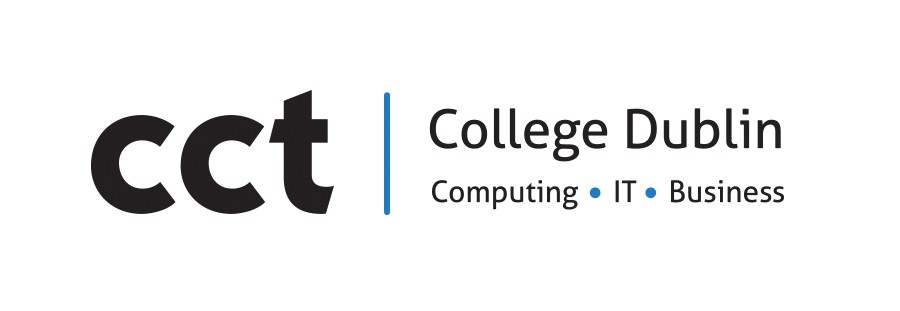CCT College Dublin has identified entry criteria and processes that will enable it to determine an applicant’s potential to succeed on the proposed programme.
The direct entry route to this programme requires applicants to evidence numerate, technical and analytical ability to a minimum of NFQ level 8 standard.
The following are accepted as appropriate evidence for direct entry:
a. An NFQ Level 8 major award, or higher, in the discipline areas of ICT/Computing, Business, Science or Engineering or cognate discipline
or
b. An NFQ Level 8 major award, along with relevant experience in the area of Data Analytics and/or professional certification, may also be considered
In both scenarios presented above, applicants will also be required to evidence ability in the application of mathematical concepts such as algebra, or spreadsheet analysis and formulas, database knowledge, for example, to a level 8 standard. This is essential to demonstrate applicants numerate, technical and analytical ability required to ensure capacity for the extent of mathematical and technical content related to the programme.
This programme is designed for individuals who have previous knowledge in computing, analytics or similar through professional experience and/or educational qualifications. This programme is not suitable for individuals with only basic computer literacy.
English Language Entry Requirement: Applicants whose first language isn’t English must demonstrate a minimum competency in the English Language of CEFR B2+.
To fully engage in this programme applicants will be required to have access to the internet, a laptop or desktop PC with webcam, microphone and speakers or headset. The minimum recommended specification is Windows Operating System with a basic RAM Memory of 8GB DDR4 RAM with a basic processor Intel i5 (7th Gen and above) with a dedicated graphics card (or equivalent graphics option).
Applications are also welcome from individuals who do not meet the standard entry requirements but wish to apply for entry based on prior learning (RPL) or prior experiential learning (RPEL). The College will thoroughly assess applications received through RPL and RPEL to ensure that candidates are able to evidence learning to an appropriate standard – normally the framework level equivalent to the direct entry qualifications requirement and demonstrate potential to succeed and benefit from the programme. Applications submitted on this basis will be assessed in line with the College RPL policy.
The programme has been designed to produce graduates with the attributes required of data specialists and analysts today and the ability to continue to develop knowledge, skill and competence to remain competitive and employable in an ever-advancing discipline. On successful completion of the MSc in Data Analytics learners may progress to further study or research opportunities.
Graduates of the MSc in Data Analytics should be able to secure professional roles at intermediate and advanced positions in data analysis across all sectors of the economy and progress to leadership or research roles using skills related to those learned in the programme curriculum. Potential roles include but are not limited to: Business Intelligence Analyst, Data Analyst, Data Scientist, Data Engineer, Quantitative Analyst, Data Analytics Consultant, Operations Analyst, Marketing Analyst, Data Project Manager, IT Systems Analyst, Transportation Logistics Analyst, Financial Data Analyst, Healthcare Data Analyst.
According to Grad Ireland, who issue regular surveys to Industry on employability trends, the graduate recruitment trends for Ireland and Northern Ireland specifically list data analytics as an area where recruiters saw one of the biggest skills shortfalls at 46%.
This programme aims to produce graduates who are technically skilled, problem solvers, professional, good communicators and effective team players as well as leaders. The graduate will also be well-placed to pursue further academic or professional study.
